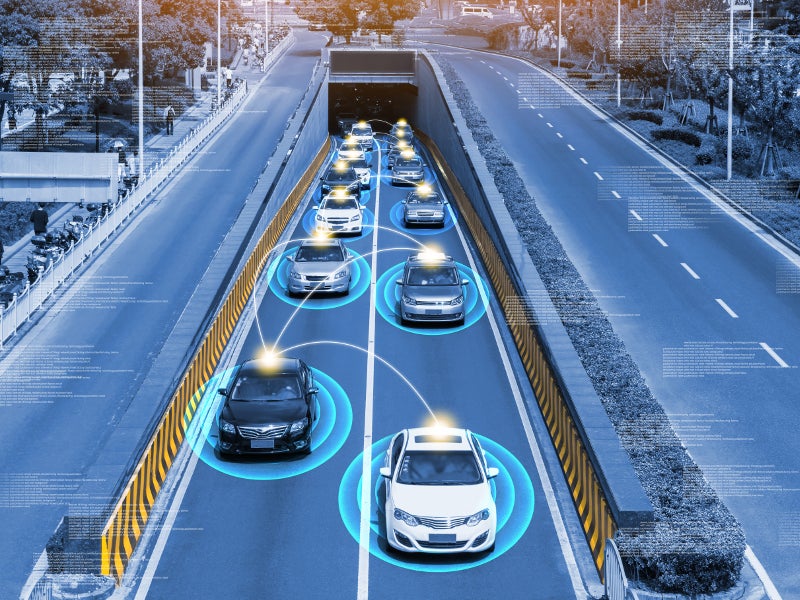GlobalData views smart cities as one of the six markets for IoT technology. The other five are the connected car, the automated home, the industrial internet, wearable tech and ambient commerce. Smart cities rely on many technologies, but especially on the IoT technology. It is being perceived that companies that gain an early foothold in smart cities will come to dominate so-called urban technology, just as the early days of the internet were dominated by proprietary solutions before a more open approach took over.
Listed below are the leading public companies in smart cities, as identified by GlobalData.
Accenture – US
Accenture’s work on smart cities goes back to 2009. This was when it was picked by Amsterdam to help implement its smart city program and create what Amsterdam claimed would be the EU’s first intelligent city. Accenture recently beefed up its presence in Chicago with the launch of an innovation studio, dubbed ‘The Forge’. The company is also currently working on a connected autonomous vehicle and smart city test-bed in Ottawa in Canada. Earlier in 2019, Accenture launched an applied intelligence platform to help organisations make better use of AI.
Amazon – US
Amazon Web Services (AWS) has defined a series of cluster solutions for smart cities to encourage collaboration and the development of standards. It says many of today’s smart city/community development efforts are isolated, customised projects. This is a situation that led the US National Institute for Science and Technology (NIST) to launch a Global City Teams Challenge (GCTC) to foster greater collaboration.
AT&T – US
AT&T has alliances with companies such as Cisco, Deloitte, Ericsson, GE, IBM, Intel, and Qualcomm to help support its Smart Cities Framework. Early in 2019, AT&T said it would be trialling a smart lighting solution across Las Vegas with Ubicquia. This is aimed at improving public safety and energy efficiency. AT&T is also working with Georgia Power, GE Current, and Intel on transforming Atlanta’s existing street lighting into a sensor-enabled data network.
Cisco – US
Cisco was one of the early drivers and it continues to be one of the main players in the smart cities platforms market. It evolved a set of tools and guidelines to create a smart city framework named Cisco Kinetic for Cities. It also offers solutions for cities’ network architecture, lighting, environment, parking, safety and security, and waste management. The company has collaborated with smart meter company Itron to turn smart metering technology into an open, enterprise-class network for utilities.
Ericsson – Sweden
Ericsson anticipates 5G being the key technology to drive smart cities’ development. It also has a position in smart parking and traffic management, partnering with Etisalat. The intention is to develop IoT platforms that provide a more integrated approach to traffic management optimisation. Ericsson already has a smart traffic management deal with Dallas to help ease traffic congestion. Dallas will use Ericsson’s IoT-based Connected Urban Transport solution. This should give cities around it the ability to aggregate and analyse real-time data from traffic sensors and cameras.

US Tariffs are shifting - will you react or anticipate?
Don’t let policy changes catch you off guard. Stay proactive with real-time data and expert analysis.
By GlobalDataGE – US
GE and Nokia are collaborating to roll out GE’s CityIQ platform technology across Canada. The system will repurpose street lighting into digital infrastructure that distributes data via Nokia’s communications networks. GE also recently concluded a deal with the City of Atlanta to transform its street lighting into a connected digital infrastructure.
Honeywell – US
Honeywell has partnered with Indian state governments and local authorities as part of India’s 100 Smart Cities project. The plan is to implement IoT-enabled city-wide security and surveillance systems. It includes the installation of 10,000 CCTV cameras, emergency response solutions, an automatic number plate reading system (ANPR), and intelligent traffic management technologies. This will be rolled out to 65 cities and towns across India.
IBM – US
IBM played a pivotal role in kicking off the development of smart cities The starter was the Smarter Planet and Smarter Cities campaign and competition in 2008 and 2009. IBM Canada is teaming up with telecoms group Bell Canada in the city of Markham. This is to test systems for monitoring city infrastructure and detecting problems. The six-month research program which began earlier in 2019. It will combine Bell’s broadband networks, IBM data analytics, and data from sensors placed in various parts of the city.
Schneider Electric – France
Schneider Electric is designing and building a microgrid within critical buildings in Milford, Connecticut. The US Department of Energy’s 2017 Grid Reliability Study recommended microgrids as a way to provide the necessary resilience against energy outages. In India, Schneider has been involved in building the country’s first integrated greenfield smart city in Naya Raipur. Schneider Electric India will be installing a command and control centre and integrating it with several smart city areas.
Siemens – Germany
Siemens has set up its Swiss campus in Zug to showcase what smart buildings can achieve. These include building information modelling (BIM), fire detection, access and intrusion control, CCTV, and heating, ventilation, and air conditioning (HVAC) automation. Nanjing in China is one of the 45 cities that has used Siemens’ City Performance Tool (CyPT) to build a greenhouse gas emissions baseline for its transport, buildings, and energy sectors. In transportation, Siemens recently opened a digital lab for intelligent traffic systems in Austin, Texas. The lab will monitor, collect, and analyse data to develop digital urban mobility technologies.
This is an edited extract from the Smart cities – Thematic Research report produced by GlobalData Thematic Research.









